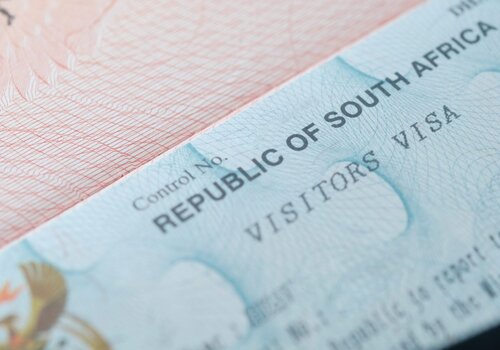In the last few years, many Nigerian students have been choosing to study at universities in Germany. This is because Germany has some of the best universities in the world. However, it’s important to remember that studying at a German university is not just a walk in the park. There are a few things that you need to know to get accepted. In this article, we will discuss how to apply to universities in Germany from Nigeria and equip you with all the information you need for success.
Many Nigerians are seeking admission into German universities every year. According to Sahara reporters, Nigerians ranked fifth among African students in Germany. In enrollment data collected from studying-in-germany.org, it is found that as of Winter Semester 2017/18, there were 1,970 Nigerian students attending university in Germany. These latest official statistics indicate that Germany is becoming a more attractive study destination for ambitious students from Nigeria.

According to the Studying in Germany Survey, the following are the top reasons why Nigerians enjoy studying in Germany:
- Affordable Tuition Fees: 35.3%.
- Quality of Education and Qualified Academia: 29.3%.
- Student Diversity and English Language Programmes: 20.4%.
- Attractive Country: 15.1%.
However, not all Nigerian students can access the same resources and opportunities to study in Germany. Here is a guide on what you need to do to get accepted into a German university, regardless of your proficiency in the German language. With these simple guidelines, you will be well on your way to applying and obtaining acceptance into one of Germany’s top universities.
| Cheap Universities in Germany | Germany Student Visa Requirements | Requirements to Study in Germany |
Table of Contents
- 1 How to Apply to Universities in Germany from Nigeria
- 1.1 Apply for a Bachelor’s Degree in Germany
- 1.1.1 #Step 1. Choose the University and the Bachelor program:
- 1.1.2 #Step 2. Check the requirements:
- 1.1.3 #Step 3. Learn the German language:
- 1.1.4 #Step 4. Prepare financial means:
- 1.1.5 #Step 5. Submit your application:
- 1.1.6 #Step 6. Wait for the admission letter:
- 1.1.7 #Step 7. Get health insurance:
- 1.1.8 #Step 8. Get a student visa:
- 1.2 Apply for a Master’s Degree in Germany
- 1.3 Apply for a Ph.D. Degree in Germany
- 1.4 Wrapping Up
- 1.1 Apply for a Bachelor’s Degree in Germany
How to Apply to Universities in Germany from Nigeria
We have simplified the application process for studying in Germany from Nigeria into three categories. Follow these three classes to stay on top of where you are and what you must do to make your dream of studying in Germany a reality.
- Apply for a Bachelor’s Degree in Germany
- Apply for a master’s Degree in Germany
- Apply for a Ph.D. Degree in Germany
Apply for a Bachelor’s Degree in Germany
If you are a Nigerian student interested in pursuing a Bachelor’s degree in Germany, we must welcome your decision and guide you through the application process.
To assist you, the following is a complete set of steps to apply for a Bachelor’s degree program in Germany:
#Step 1. Choose the University and the Bachelor program:
The first step is to research and identify the university and bachelor’s program you want to apply for. You can check for universities and programs that fit your interests and qualifications. Based on recent statistics, Most Nigerian students opt for engineering courses.
#Step 2. Check the requirements:
Once you choose the university and program, check the admission requirements. The requirements may vary depending on the university and program, but usually, you’ll need your high school certificate, German language proficiency test scores, motivation letter, and other relevant documents.
#Step 3. Learn the German language:
Most universities in Germany teach the German language. Therefore, it’s necessary to have a good level of proficiency in the German language. You can take a German language course in Nigeria or enroll in a language school in Germany before starting your regular course.
#Step 4. Prepare financial means:
Next, you will need to show that you can finance your studies in Germany. You must have sufficient funds to cover your tuition fees, accommodation, and living expenses. To be given a German student visa, you must have a minimum of €11,208 in a blocked bank account. Also, remember that you can get a scholarship or apply for a student loan to cover these costs.
#Step 5. Submit your application:
You can apply for admission online through UniAssist.de or the university admission office. Since it’s totally dependent on the university’s own application policies, we recommend contacting them to see what options you have for running your application. Make sure you submit all the required documents and pay the application fee.
#Step 6. Wait for the admission letter:
After submitting your application, you must wait for the admission decision. Depending on the university and program, this can take a few weeks or even months.
#Step 7. Get health insurance:
Once you receive your admission letter, you must get health insurance. You can either purchase health insurance in Nigeria or get it in Germany.
#Step 8. Get a student visa:
The final step is to apply for a student visa at the German embassy in Nigeria. You must provide proof of admission, health insurance, and financial means to support your studies in Germany. To find out what documents you need to collect in order to apply for a visa to get a bachelor’s degree in Germany, please read our article on German student visa requirements from Nigeria.

Apply for a Master’s Degree in Germany
If you are going for a Master’s degree in Germany, we have also got you covered! Luckily, in Germany, there are many master’s courses taught in English as well as many great opportunities for anyone wishing to pursue postgraduate programs. The German education system offers a variety of Master’s degrees to international students.
There are four (4) types of higher education in Germany:
1. Research Universities
Research Universities are higher education institutions providing facilities and academic expertise to students seeking Master’s and Ph.D. degrees. The government runs the majority of research universities.
2. Technical Universities
Technical universities are a subcategory of research universities specializing in science, technology, and engineering. Here, students are encouraged to think critically and creatively and are well-equipped to enter the workforce with the skills and knowledge needed to succeed.
3. Universities of Applied Sciences
Engineering, business, and social sciences are the focus of universities of applied sciences. They frequently collaborate with professional or commercial organizations. Most of the time, these universities do not grant PhDs. Except when they partner with an organization only to provide specialized Ph.D. programs. In Germany, a large number of Applied Science Universities are private institutions.
4. Colleges of Art, Film, and Music
These institutions specialize in providing tuition in the creative disciplines. They may be affiliated with either Research Universities or the University of Applied Sciences. Several of these universities are independent. Students are required to have creative skills as well as experience.
Please Note: For Nigerian students looking to study master’s degree in Germany, follow the steps outlined above for the bachelor’s degree program. They are essentially the same steps. But ensure you have all the required documents and qualifications before proceeding.
Apply for a Ph.D. Degree in Germany
Obtaining a Doctorate or Ph.D. degree in Germany may seem difficult for Nigerian students, but it is not. According to the most recent enrollment data, German universities are home to over 380,000 international students, with Ph.D. candidates accounting for approximately 10% of that total, with Nigerian students included in the mix.
To help you through the application process, below are the complete steps for applying for Ph.D. degrees at German universities.
#Step 1. Check Your Eligibility
First, you must meet the eligibility criteria before applying for a Ph.D. program in Germany. The basic requirement is a Master’s degree in a relevant field. However, some universities may also consider candidates with a Bachelor’s degree and substantial research experience. You should also have a good academic track record and excellent English, German, or both language skills.
#Step 2. Find a Ph.D. Degree
Once you meet the eligibility criteria, the next step is identifying a Ph.D. program that aligns with your research interests. You can do this by researching online or using databases such as DAAD (German Academic Exchange Service), which provides information on Ph.D. programs in Germany. It’s also advisable to contact German professors conducting research in your field and inquire about Ph.D. opportunities in their institutions.
#Step 3. Requirements
Most universities in Germany have specific requirements that applicants must meet. Typically, the requirements for a Ph.D. program include the following:
- A Master’s degree recognized in Germany
- A strong academic record with an average grade of at least 3.0 (German grading system) or its equivalent
- Proof of language proficiency in English, German, or both, depending on the language of instruction for the program.
- The research proposal or statement.
- Recommendation letters from academic referees or supervisors.
- Relevant certificates and transcripts from previous institutions attended.
- Curriculum Vitae or Resume
It is important to note that your qualifications in Nigeria must first be recognized by the university or institution where you wish to attend. If it is determined that your master’s degree does not qualify you for Ph.D. studies in Germany, you may still be enrolled after completing a fast-track preparatory course that will teach you the skills and knowledge required in your standard Ph.D. course.
#Step 4. How to Apply
Once you have identified a Ph.D. program and reviewed the requirements and documents, the next step is to submit your application. Remember that the application process details may be typical of the university to which you wish to apply; thus, you must contact your Ph.D. provider for a thorough explanation of the application process.
After you have chosen an available professional tutor for your individual doctorate, a committee is usually in charge of selecting whether your academic profile meets exactly the vacant position in their Ph.D. programs.
In this case, the committee will require the following documents to determine whether you are a suitable candidate:
- Certified copies of your qualifications
- A statement from your personal mentor
- Academic references
- Proof of Language Proficiency
- Transcripts, research proposals, curriculum vitae, and recommendation letters.
It should be noted that applying for Ph.D. studies in Germany can be done online by scanning your documents into PDF or JPG format. Remember that the committee may be interested in doing an interview with you through Skype. Essentially, the interview will revolve around your master’s studies and their relevance to the Ph.D. program you wish to pursue.
Wrapping Up
In summary, the application process to universities in Germany from Nigeria is a challenging but rewarding journey. You may face hurdles along the way, but with enough research and persistence, you will be able to find the right school for yourself. By following these steps and staying outlined above, you will have no problem submitting an effective application for your desired university. So now that you know how to apply to universities in Germany from Nigeria, what are you waiting for? Share this article with your friend who also wants to study in Germany. Good luck!








